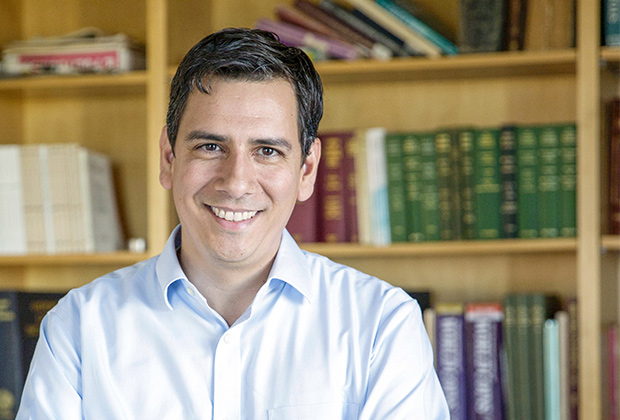Dimitri Nakassis Receives The MacArthur Foundation’s “Genious Grant” Challenging Long Held Views on Mycenaean Civilization
The MacArthur Foundation announced recently the recipients of the 2015 MacArthur Fellowiship, commonly known as the “genius grants,” including classicist Dimitri Nakassis. He and 23 other exceptionally creative Fellows will receive a no-strings-attached $625,000 grant for their cutting-edge work that is transforming their fields. Nakassis is a classicist transforming our understanding of prehistoric Greek societies. His rare intellectual breadth, comprising philology, archaeology, and contemporary social and economic theory, has equipped him to challenge the long-held view that Late Bronze Age Mycenaean palatial society (1400–1200 BC) was a highly centralized oligarchy, quite distinct from the democratic city-states of classical Greece. Instead, he proposes that power and resources were more broadly shared. This thesis, developed in his first book, Individuals and Society in Mycenaean Pylos (2013), is derived from a meticulous reinterpretation of Pylos’s administrative and accounting records (found on clay tablets and written in the early Greek script, Linear B).

Dimitri Nakassis
Standard interpretations of the tablets suppose a rigid political structure in which a small group of palace elites controlled and distributed all resources. Nakassis re-examined this model using a traditional method, prosopography, but through the lens of contemporary theoretical discussions of agency and structure. He determined that some recurrences of a personal name refer to the same individual playing multiple, sometimes competing, roles. This insight offers an alternative picture of the Mycenaean world as a more open society with a dynamic and competitive economic structure that displays some similarities to the democratic polis of classical Greece.
Nakassis is testing his hypothesis through an archaeological survey, the Western Argolid Regional Project that will reconstruct the settlement history of a core region of the Mycenaean world from prehistory to modern times and clarify how Mycenaean states mobilized labor, incorporated peripheral communities, and expressed power over many centuries. He is also co-directing a new study of the Linear B tablets from Pylos that includes the use of digital imaging technologies (three-dimensional scanning and Reflectance Transformation Imaging, a kind of computational photography) to produce high-quality print and digital editions of these important documents for the first time. Nakassis’s multifaceted approach to the study of Bronze Age Greece is redefining the methodologies and frameworks of the field, and his nuanced picture of political authority and modes of economic exchange in Mycenaean Greece is illuminating the prehistoric underpinnings of Western civilization.
Dimitri Nakassis received a B.A. (1997) from the University of Michigan and an M.A. (2000) and Ph.D. (2006) from the University of Texas at Austin. He joined the faculty of the University of Toronto in 2008, where he is currently an associate professor in the Department of Classics, and he has been a visiting professor at the University of Colorado Boulder (2014–2015), the Florida State University (2007–2008), and Trinity University (2006–2007). His articles and essays have appeared in the American Journal of Archaeology, Hesperia, and Greek, Roman, and Byzantine Studies, among others.
Source, MacArthur Foundation.















0 comments